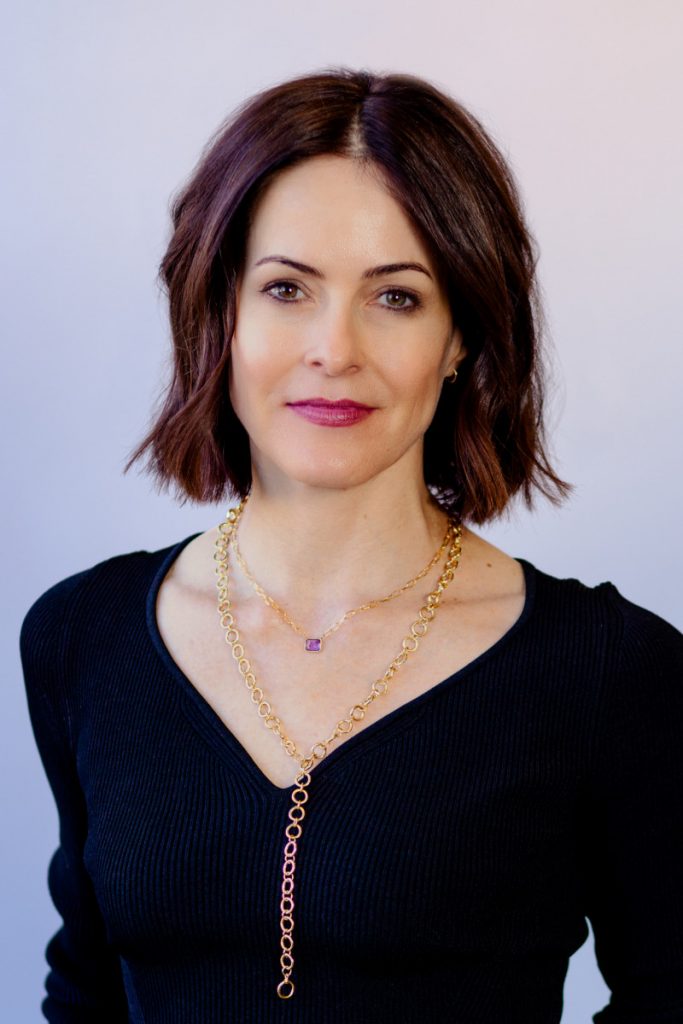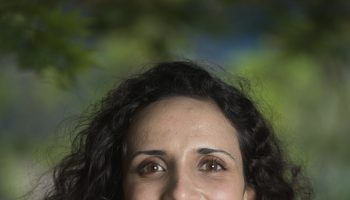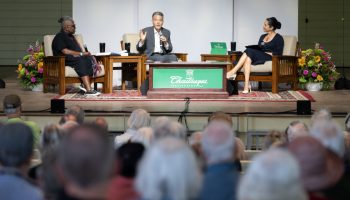
Journalist and author Bethany McLean believes that in order for the United States to build a better future for the country’s financial system and economy, it must be willing to learn from past mistakes.
As a contributing editor for Vanity Fair magazine who also contributes to Business Insider and CNBC, McLean will continue the week’s lecture theme “What We Got Wrong: Learning From Our Mistakes” at 10:45 a.m. today in the Amphitheater.
She has written several books, including The Smartest Guys in the Room: The Amazing Rise and Scandalous Fall of Enron, co-authored with investigative reporter Peter Elkind. She first spoke at Chautauqua in 2011 about the book, which inspired an Academy Award-nominated documentary.
Her latest book is The Big Fail: What the Pandemic Revealed About Who America Helps and Who it Leaves Behind, which she co-authored with business journalist Joe Nocera. It details the country’s handling of the COVID-19 pandemic and examines the failures within the healthcare and financial systems.
Known for her extensive reporting on the Enron scandal that came to light in 2001 and writing about the 2008 financial crisis, McLean said she became fascinated early in her career about learning how and why financial crises happen.
“I started to become very interested in why things go wrong in the world of finance and business, because they’re very fascinating stories of human nature,” she said. “It’s rarely as simple as bad people setting out to do bad things.”
Starting her career as a fact checker at Fortune Magazine in 1995, she began diving deeper into business journalism and spent three years working on Wall Street.
Enron was the first financial calamity she covered; her article questioning the corporation’s financial documents gained national attention. Though she is credited with breaking the story, she said she simply raised questions that no one else had brought up.
“I look back and I fought myself for being naive at the time, not seeing that the problems could be so much deeper, but I think back then we were all naive because it had been a really long time before there had been a major problem in the business world and financial system,” she said. “The idea that one of America’s largest and most admired companies could be as corrupt as it was, it was shocking.”
After Enron’s fallout, she thought the situation was an exception in America’s financial system, not the rule. When the 2008 financial disaster emerged, her views began to shift.
“I’ve become increasingly suspicious,” she said. “While still thinking that capitalism is the best system there is, I’ve become increasingly skeptical of where it works and where it doesn’t work and some of our preconceptions about it.”
McLean’s lecture will focus on the findings in The Big Fail, explain some of the mistakes within American capitalism that contributed to or exacerbated crises such as the 2008 financial disaster and the coronavirus pandemic, and offer advice for how the United States should learn from its mistakes.
When it comes to the COVID-19 pandemic, she said the best thing the country can do is be willing to honestly assess what went wrong, or what could have been done differently.
“There’s just a complete unwillingness to look at the pandemic, and I think that some of that is legitimate and something that is totally understandable,” she said. “We went through something pretty awful and we don’t want to look back at it. But some of it is just willful blindness and absolute refusal to learn from the past.”
Part of that unwillingness to acknowledge the problems the country faces stems from political beliefs and partisan divides that drive a wedge between looking at the past and preparing for the future, she said.
When Chautauquans leave her lecture, McLean said she hopes audiences understand the importance of bringing morality back into business, financial and healthcare decisions and understand the need for economic sustainability. She also hopes that people keep their social and political ideologies from interfering in how they perceive the world.
Through it all, her curiosity and passion motivate McLean to keep going, reporting on America’s financial and healthcare systems and the economy.
“The economy is people’s lives,” she said. “You can’t separate the structure of our society or people’s wellbeing from how the economy is functioning, and you can’t separate our democracy from it.”




